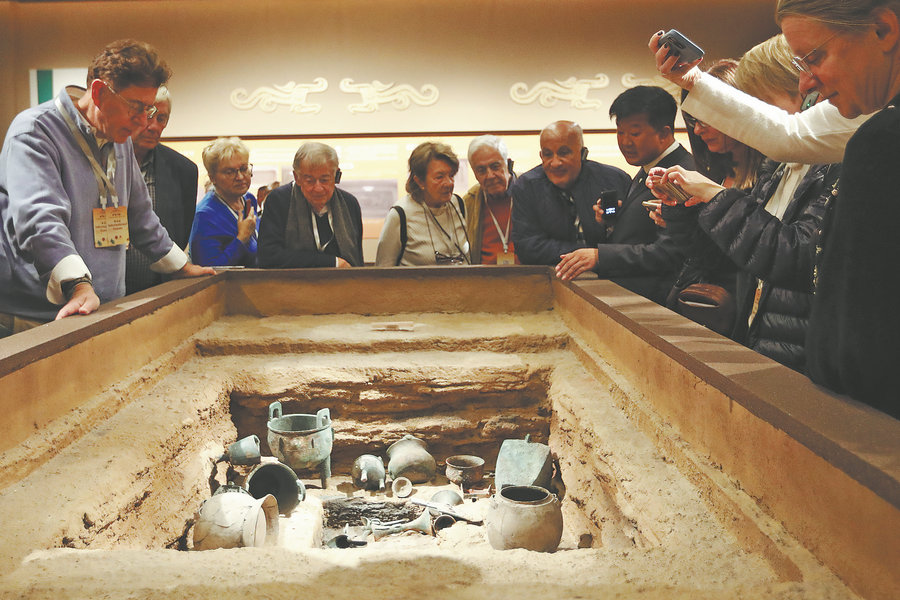Wonders of time travel spur jaunts of discovery
China's younger generations seek better exhibition experiences through rare works, digitalization and interaction, Xu Lin and Wu Yong report.


Visually touching the heart
"The painting describes a scene from ancient Kaifeng, once the capital of the Northern Song Dynasty. The city where I work and live still maintains the inheritance of Song culture, emphasizing the importance of China's cultural heritage. This visual encounter touches my heart more deeply than reading or hearing about it," Wu says.
"When you view the original artwork with the naked eye, you can see the techniques used, such as color layering and brushstroke applications that digital replicas can't convey."
According to her, as Chinese calligraphy and paintings age over time, cracks and fading intertwine with the vivid original colors to create an enduring artistry that transcends the boundaries of time. "I'm fascinated by these changes. It's a way to experience the beauty inherent in history," she says.
The museum lover takes one or two days off in addition to the weekend to embark on short trips to other cities to see exhibitions she's interested in.
"Every museum highlights the special aspects of its region. Chinese culture is rich and diverse with a long history. Some cities were former capitals of dynasties, allowing for a historical retrospective into those periods," she says.
"Visiting exhibitions in new places feels like unwrapping a blind box. I enjoy life's surprises, and merging travel with exhibitions is a double delight."
She recommends that travelers prepare by reading relevant materials and books and watching documentaries to enhance the effectiveness and rewards of their visits.
Zhang Yue, 34, an office worker from Shanghai, recently traveled to Anyang, Henan province, to visit the Yinxu Museum.
The museum displays the archaeological findings of the Yinxu Ruins, the remains of the ancient city of Yin, one of the capitals of the late Shang Dynasty (c. 16th century-11th century BC).
Zhang is impressed by Shang's wine culture showcased through the museum's wide collection of bronze wine vessels featuring elegant shapes and intricate patterns.
She also learned about how the diviners of Shang used oracle bones to tell fortunes. They engraved small holes and notches on tortoise shells or ox scapulae, and then burned them in a fire, interpreting the burned cracks as omens.
"Visiting museums enhances one's understanding of history and art, and you can connect different pieces of knowledge the more you see. When you see artifacts, you can delve into the stories behind them. It's more engaging than reading books and gives deeper insights into ancient customs and traditions," Zhang says.
Her exhibition preferences include Chinese calligraphy, paintings from both China and abroad, and Buddhist statues. She often hires an experienced museum guide to tour the exhibitions and provide detailed explanations.
"When I visit art exhibitions, I'm often captivated by discovering new pieces. It deepens my understanding of art and the historical background of the works," Zhang says.
More Chinese people, especially the younger generations, are traveling to other cities specifically to visit museum exhibitions that pique their interest.
Museums have become important tourist attractions and draw a large number of visitors during holidays. According to the National Cultural Heritage Administration, museums across the country received 74.88 million visitors during the 2024 National Day holiday.
























